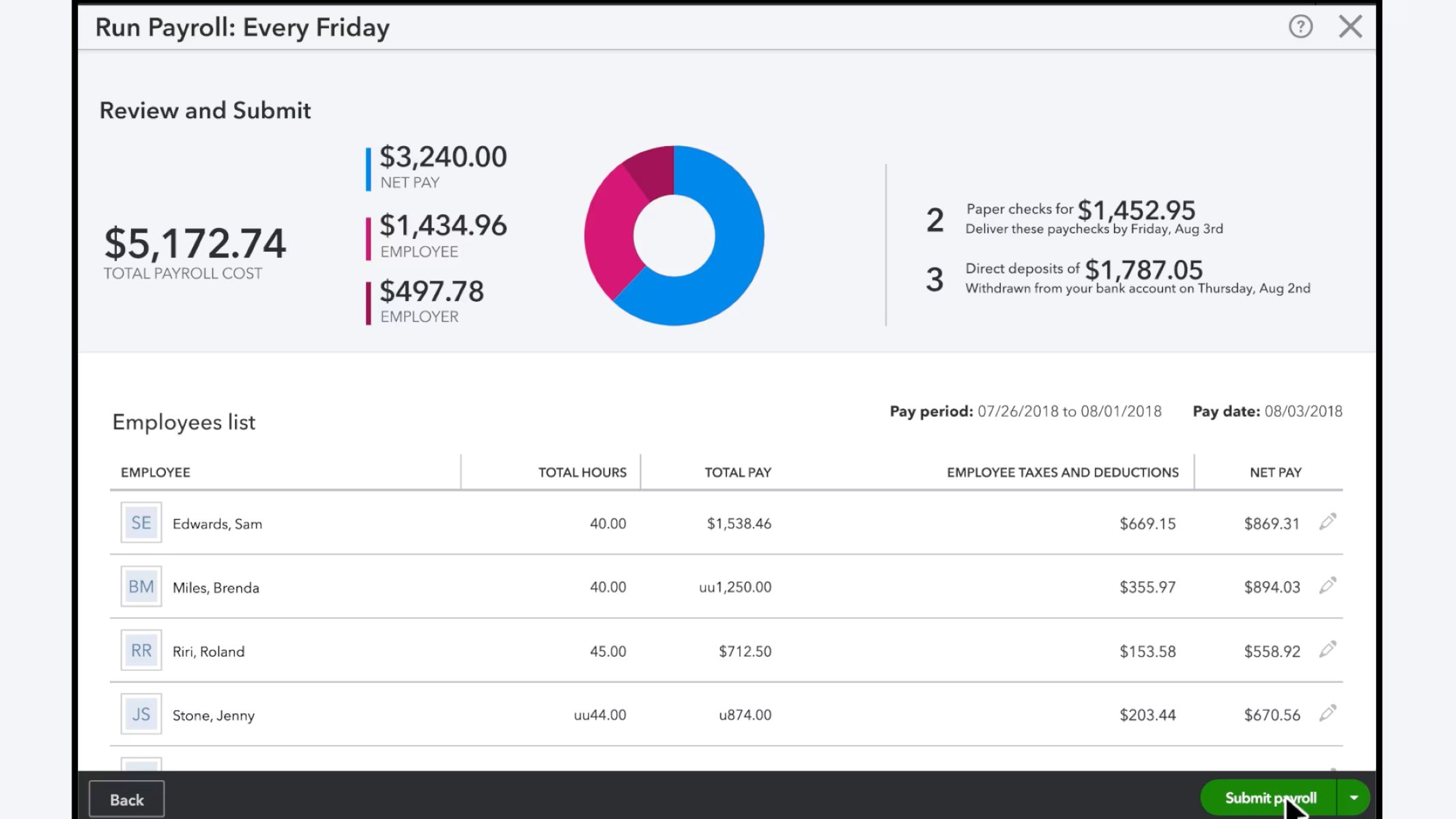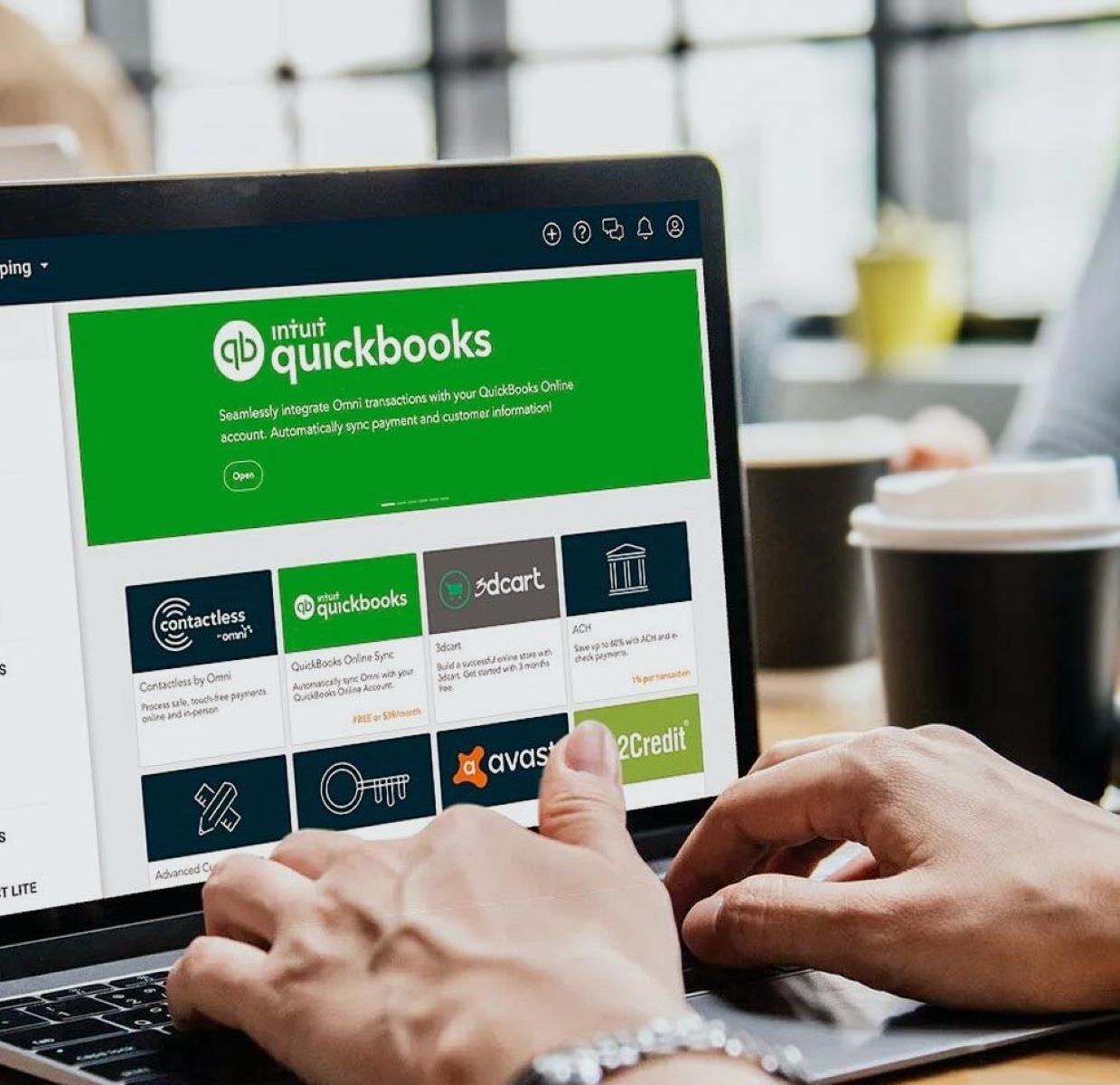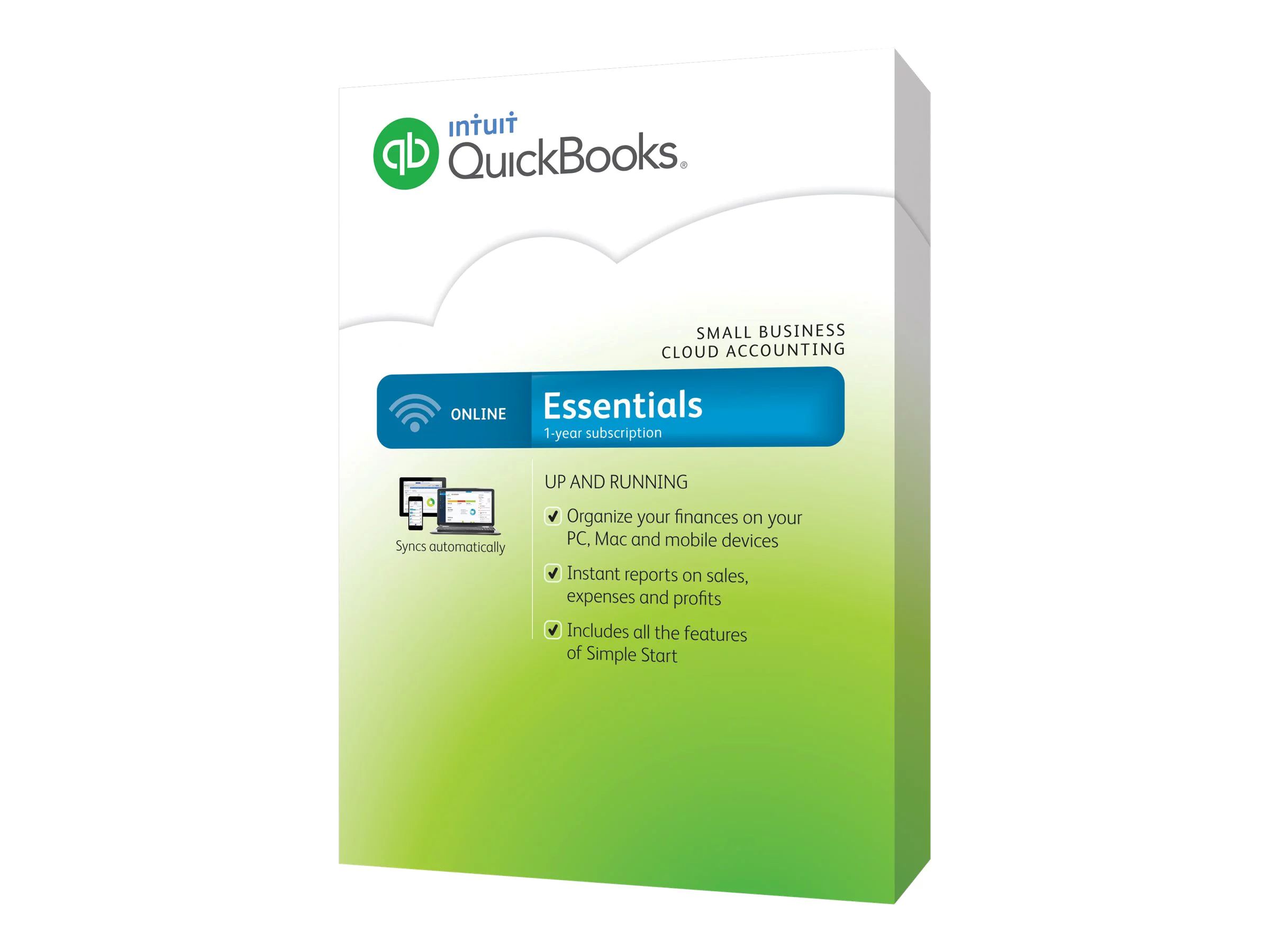Introduction
Welcome to the world of QuickBooks certification! If you have a passion for accounting or want to boost your career in the finance industry, becoming QuickBooks certified can open up a multitude of opportunities for you.
QuickBooks is a powerful accounting software developed by Intuit that helps businesses manage their financial transactions, payroll, invoicing, and more. Becoming certified in QuickBooks demonstrates your proficiency in utilizing the software and your understanding of accounting principles.
With the increasing shift towards digitalization and the demand for efficient financial management systems, being QuickBooks certified is highly advantageous. It gives you a competitive edge in the job market and sets you apart as a trusted professional.
In this article, we will guide you through the process of becoming QuickBooks certified, taking you from the initial requirements to receiving your certification. Whether you are an aspiring accountant, a small business owner, or a professional looking to enhance your skill set, obtaining QuickBooks certification is a significant step towards success.
Before we delve into the details of the certification process, let’s explore why becoming QuickBooks certified is so beneficial.
Why become QuickBooks certified?
Here are some key reasons why obtaining QuickBooks certification is worth considering:
- Career advancement opportunities: Having QuickBooks certification on your resume can open doors to better job opportunities and higher paying positions. Employers often value certified professionals who can efficiently navigate and leverage the software.
- Business growth: If you are a small business owner or an entrepreneur, being QuickBooks certified allows you to effectively manage your finances, track expenses, generate reports, and make informed decisions to drive the growth of your business.
- Industry recognition: QuickBooks certification validates your expertise and knowledge in accounting and financial management. It establishes you as a trusted professional in the industry and showcases your commitment to staying updated with the latest technologies.
- Client confidence: As a certified QuickBooks professional, you can instill confidence in your clients. They trust that you have the expertise to handle their financial data securely and accurately, building stronger relationships with your clients.
Now that you understand the importance of becoming QuickBooks certified, let’s proceed to explore the requirements for obtaining the certification.
Why become QuickBooks certified?
Obtaining QuickBooks certification offers numerous benefits for individuals in various professions. Whether you are an aspiring accountant, a small business owner, or a finance professional, here are some key reasons why becoming QuickBooks certified is worth considering:
- Career advancement opportunities: QuickBooks certification can open doors to better job opportunities and higher-paying positions. Employers often value certified professionals who can efficiently navigate and leverage the software. Having this certification on your resume puts you ahead of the competition and demonstrates your expertise in accounting and financial management.
- Business growth: For small business owners or entrepreneurs, becoming QuickBooks certified allows you to effectively manage your finances, track expenses, generate reports, and make informed decisions. The software provides powerful tools to streamline your accounting processes, allowing you to focus on growing your business and making strategic decisions based on accurate financial data.
- Industry recognition: QuickBooks certification validates your knowledge and expertise in accounting and financial management. It establishes you as a trusted professional in the industry and showcases your commitment to staying updated with the latest technologies. This recognition not only enhances your professional reputation but also boosts your credibility among clients and colleagues.
- Client confidence: As a certified QuickBooks professional, you can instill confidence in your clients. They trust that you have the expertise to handle their financial data securely and accurately. With QuickBooks certification, you can provide accurate financial reports, effectively manage their accounts, and offer valuable insights to help them make informed business decisions. This trust and confidence build stronger client relationships and can lead to greater client retention and referrals.
- Personal development: Pursuing QuickBooks certification is an excellent opportunity for personal and professional growth. The certification process requires you to deepen your understanding of accounting principles, learn the intricacies of the QuickBooks software, and stay up-to-date with industry trends. The knowledge and skills you acquire during the certification journey will benefit you throughout your career, expanding your capabilities and making you a more well-rounded financial professional.
Overall, becoming QuickBooks certified equips you with the necessary skills and knowledge to excel in the field of accounting and financial management. It validates your expertise and demonstrates your commitment to professional development. Whether you are looking to advance your career, improve your business operations, or enhance your professional reputation, obtaining QuickBooks certification is a valuable investment.
Requirements for QuickBooks Certification
Before embarking on your journey to become QuickBooks certified, it is important to understand the requirements that need to be fulfilled. While the specifics may vary depending on the certification level you choose, here are the general requirements for obtaining QuickBooks certification:
- Experience with QuickBooks: While there is no specific work experience requirement to pursue QuickBooks certification, it is recommended to have a solid understanding of the software. Familiarize yourself with basic accounting concepts and the functionalities of QuickBooks by working with the software in a professional setting or through self-study.
- Training and Education: Intuit, the company behind QuickBooks, offers training programs and courses to help you acquire the necessary knowledge and skills for certification. It is highly recommended to take advantage of these resources to fully understand the software and its features. Additionally, attending training sessions and completing courses can often be a prerequisite for taking the certification exam.
- Passing the Certification Exam: The final step in becoming QuickBooks certified is passing the certification exam. The exam tests your knowledge and proficiency in using the QuickBooks software effectively. The questions cover various topics, including setting up and managing accounts, transactions, payroll, reports, and more. To pass the exam, you need to achieve a designated passing score, which may vary depending on the certification level you are pursuing.
- Selecting the Certification Level: QuickBooks offers different certification levels, including QuickBooks Online Certification and QuickBooks Desktop Certification. Before taking the certification exam, it is essential to determine which certification level aligns with your goals and job requirements. Consider factors such as the type of businesses you work with, the software version you utilize, and the industry standards in your area.
- Exam Fee: There is often a fee associated with taking the QuickBooks certification exam. The fee covers the cost of evaluating your knowledge and awarding the certification upon successful completion. It is important to review the exam fee and payment details before registering for the exam.
It is worth noting that the requirements mentioned above are general guidelines. For detailed and up-to-date information regarding the specific requirements for each certification level, it is advisable to visit the official QuickBooks certification website or consult with an authorized training provider.
With a clear understanding of the requirements, you are now ready to choose the certification level that suits your needs and begin your journey towards becoming QuickBooks certified.
Choosing the Certification Level
When pursuing QuickBooks certification, you have the option to choose from different certification levels based on your specific needs and goals. Each certification level focuses on different aspects of the QuickBooks software. Here are some factors to consider when deciding which certification level to pursue:
- QuickBooks Online Certification: This certification is designed for individuals who primarily work with QuickBooks Online, which is the cloud-based version of the software. If you work with clients or businesses that use QuickBooks Online for their accounting needs, obtaining this certification is highly recommended. It covers topics such as setting up accounts, managing transactions, payroll, reporting, and utilizing the various features of QuickBooks Online.
- QuickBooks Desktop Certification: If you work with clients or businesses that use the desktop version of QuickBooks, the QuickBooks Desktop Certification is the appropriate choice. This certification focuses on the features, functionalities, and best practices of QuickBooks Desktop. It covers areas such as setting up company files, managing accounts and transactions, inventory management, and advanced reporting.
- Industry-Specific Certifications: In addition to the general QuickBooks certifications, Intuit also offers industry-specific certifications that cater to professionals working in specific sectors. These certifications are designed to provide specialized knowledge and understanding of the software as it relates to specific industries, such as construction, nonprofit organizations, and healthcare. If you specialize in a particular field, obtaining an industry-specific certification can enhance your expertise and credibility.
- Job Requirements and Market Demand: Consider the job requirements in your industry and the market demand for certified professionals. Research job postings and industry trends to identify the certifications that are most valued and sought after by employers. This can help you make an informed decision on which certification level to pursue, maximizing your career opportunities.
- Personal Interests and Long-Term Goals: Reflect on your personal interests and long-term career goals. Think about which certification level aligns with your interests and will contribute to your professional growth. Consider the type of work you enjoy and the direction you want your career to take. Choosing a certification level that aligns with your passion and future goals can make the learning process more engaging and rewarding.
While selecting the appropriate certification level is important, it is worth noting that you are not limited to pursuing just one certification. Depending on your needs, interests, and career path, you can choose to obtain multiple certifications to broaden your skill set and increase your versatility in working with different versions of QuickBooks.
By carefully considering the factors above, you can make an informed decision when choosing the certification level that best suits your specific needs and helps you excel in your career.
Finding QuickBooks Training Resources
Once you have decided on the QuickBooks certification level you want to pursue, the next step is to find reliable training resources that will help you prepare for the certification exam. Here are some effective ways to find QuickBooks training resources:
- Official QuickBooks Training: Start by exploring the official QuickBooks training resources provided by Intuit, the company behind QuickBooks. Intuit offers a variety of training options, including online courses, webinars, tutorials, and self-paced learning materials. These resources are specifically designed to help individuals learn the ins and outs of the software and prepare for the certification exam. Visit the official QuickBooks website to access these training resources and choose the ones that suit your learning style and preferences.
- Authorized QuickBooks Training Providers: Look for authorized QuickBooks training providers in your area. These providers specialize in delivering comprehensive QuickBooks training programs and are certified by Intuit. They often offer in-person or virtual training sessions, workshops, and boot camps specifically tailored for QuickBooks certification. Collaborating with an authorized training provider can give you access to expert instructors and interactive learning experiences that enhance your understanding of the software.
- Online Learning Platforms: Explore online learning platforms that offer QuickBooks training courses. Platforms like Udemy, Coursera, and LinkedIn Learning have a wide range of QuickBooks courses taught by industry professionals. These courses vary in duration and depth, allowing you to choose the ones that align with your learning goals. Online learning platforms provide the flexibility to learn at your own pace and often offer practical exercises and quizzes to test your progress.
- Community Colleges and Continuing Education Centers: Check with local community colleges and continuing education centers in your area. They often offer courses or workshops focused on QuickBooks training. These programs may be part of a broader accounting or business curriculum, providing you with a comprehensive understanding of accounting principles while also preparing you for the QuickBooks certification exam.
- Books and eBooks: There are numerous books and eBooks available that cover QuickBooks training extensively. Look for reputable authors and publications that specifically cater to QuickBooks certification. These resources often provide a step-by-step guide, real-world examples, and practice exercises to reinforce your learning. Consider reviews and recommendations to ensure you choose reliable and up-to-date resources.
- Online Forums and Discussion Groups: Engage in online forums and discussion groups dedicated to QuickBooks. These platforms allow you to connect with other QuickBooks users, share experiences, seek guidance, and exchange tips and tricks for the certification exam. Participating in these communities can provide valuable insights, additional resources, and support throughout your certification journey.
When exploring training resources, it is important to select those that are relevant to the certification level you are pursuing. Focus on resources that cover the specific features, functionalities, and best practices of the QuickBooks software version you will be using.
By utilizing a combination of these training resources, you can gain a comprehensive understanding of QuickBooks and successfully prepare for the certification exam.
Studying for the Certification Exam
Preparing for the QuickBooks certification exam requires dedicated study and a structured approach. Here are some effective strategies to help you study and succeed in the certification exam:
- Create a Study Plan: Develop a study plan that outlines the time you will dedicate to studying each day or week. Setting a schedule helps you stay organized and ensures you cover all the necessary topics before the exam. Identify your strengths and weaknesses and allocate more time to challenging areas.
- Utilize Official Study Materials: Take advantage of the official QuickBooks study materials provided by Intuit. These resources are designed specifically to help you prepare for the certification exam. Use guides, manuals, practice quizzes, and sample exams offered by Intuit, as they align closely with the exam content and format.
- Review the Exam Blueprint: Familiarize yourself with the exam blueprint or syllabus, which outlines the topics and subtopics covered in the certification exam. This helps you understand the areas in which you need to focus your studying. Allocate more time to topics that carry a higher weightage in the exam.
- Practice with Real-World Scenarios: The QuickBooks certification exam often includes questions that require you to apply your knowledge to real-life scenarios. Familiarize yourself with common accounting and business scenarios, and practice using QuickBooks to solve them. This helps you develop critical thinking and problem-solving skills while getting accustomed to using the software in practical situations.
- Take Online Practice Exams: Many websites and platforms offer online practice exams specifically designed for QuickBooks certification. These exams simulate the actual exam environment and test your knowledge and comprehension of the software. Taking these practice exams helps you become familiar with the question format, assess your readiness, and identify areas that need further improvement.
- Join Study Groups or Form Study Partnerships: Collaborate with other individuals who are also preparing for the QuickBooks certification exam. Join online study groups or form study partnerships to discuss concepts, share insights, ask questions, and reinforce your learning. Explaining complex topics to others can also enhance your own understanding.
- Review and Reinforce Weak Areas: Continuously assess your knowledge and identify weak areas that require more attention. Review your practice exam results and focus on the questions you answered incorrectly. Dive deeper into those topics, seek additional resources, and reinforce your understanding through practice exercises and hands-on activities.
- Stay Updated with QuickBooks Updates: QuickBooks regularly releases updates and new features. Stay updated with these changes by following official blogs, attending webinars, and reading release notes. Understanding the latest enhancements and modifications ensures you are prepared for any questions related to the most recent version of the software.
- Take Breaks and Practice Self-Care: Studying for the exam can be intense, so it’s important to manage your time effectively and take breaks when needed. Incorporate regular breaks into your study schedule to avoid burnout. Practice self-care by getting enough sleep, eating well, and engaging in physical exercise to maintain your mental and physical well-being.
Remember, studying for the certification exam is a journey, and consistency is key. Be patient with yourself, stay motivated, and celebrate small milestones along the way. With focused effort and diligent preparation, you will be well-prepared to excel in the QuickBooks certification exam.
Registering for the Exam
Once you have studied and feel confident in your abilities, the next step is to register for the QuickBooks certification exam. Here’s a step-by-step guide on how to register for the exam:
- Check Exam Eligibility: Ensure that you meet the eligibility requirements for the specific certification level you are pursuing. Verify any prerequisites, such as completing training courses or meeting a minimum experience criteria, as outlined by Intuit.
- Choose a Testing Center or Remote Proctoring Option: Decide whether you want to take the exam at a physical testing center or opt for a remote proctoring option. Physical testing centers provide a controlled environment for the exam, while remote proctoring allows you to take the exam from the comfort of your home or office.
- Visit the Official QuickBooks Certification Website: Go to the official QuickBooks certification website to find information on the certification exam and the registration process. The website will provide details about the exam structure, duration, passing score, and other important information that you need to know.
- Create an Intuit Account: If you don’t have one already, create an Intuit account. This account will be used to access the exam registration portal and other Intuit resources.
- Access the Exam Registration Portal: Log into your Intuit account and access the exam registration portal. Follow the prompts and provide the required information, including your personal details, preferred exam date, and testing center location (if applicable).
- Pay the Exam Fee: Depending on where you live and the certification level you are pursuing, there may be an exam fee associated with the certification. Pay the exam fee securely through the registration portal using a valid payment method. Keep in mind that the fee is non-refundable, so ensure you are fully prepared before proceeding with the payment.
- Schedule your Exam: After completing the registration and payment, you will receive a confirmation email. Use the information provided to schedule your exam date and time or, if applicable, select a remote proctoring session. Make sure to choose a time that allows you to be well-rested and focused during the exam.
- Prepare for Exam Day: Review all the exam-related information provided in the confirmation email. Be familiar with the exam instructions, including any required identification or materials you need to bring with you to the testing center. If taking the exam remotely, ensure that your computer and internet connection meet the specified requirements.
- Arrive Early (if at a Testing Center): On the day of the exam, if you are taking it at a physical testing center, plan to arrive early to allow time for check-in procedures. Bring any necessary identification documents, such as a valid government-issued ID, as per the exam guidelines.
- Take the Exam: Put your skills and knowledge to the test by taking the QuickBooks certification exam. Stay calm, focused, and manage your time efficiently to answer all the questions before the allotted time runs out.
By following these steps, you can successfully register for the QuickBooks certification exam and be on your way to obtaining your official certification. Remember to thoroughly read and understand all the instructions provided by Intuit to ensure a smooth exam registration process.
Taking the Certification Exam
After thorough preparation and registration, it’s time to take the QuickBooks certification exam. This is the moment to showcase your knowledge and skills in using the software effectively. To help you perform your best, here are some key things to keep in mind as you take the certification exam:
- Read the Instructions Carefully: Before starting the exam, carefully read the instructions provided. Make sure you understand the format of the exam, the number of questions, and any specific guidelines or time limits that apply.
- Manage Your Time: The exam is timed, so time management is crucial. Plan your time wisely to answer all the questions within the allotted timeframe. If you encounter a difficult question, don’t spend too much time on it. Instead, mark it for review and move on to the next question. You can come back to the marked questions later if you have time remaining.
- Stay Calm and Focused: It’s natural to feel nervous during an exam, but try to stay calm and focused. Take deep breaths and approach each question with a clear mind. Avoid getting distracted by thoughts of performance or time pressure. Remember, you have prepared well, and you are ready for this challenge.
- Answer Each Question Carefully: Carefully read each question and all the answer options before selecting your answer. Pay attention to keywords and details that might influence your choice. If any questions are unclear, use your best judgment based on your knowledge and understanding of the topic.
- Review Your Answers: If time permits, review your answers before submitting the exam. Check for any mistakes or errors you might have made. Use this opportunity to rethink your responses and ensure you have provided the most accurate answers.
- Stay Positive and Confident: Maintaining a positive mindset can significantly impact your performance. Believe in your abilities and trust in the preparation you have done. Remember that the certification exam is a measure of your knowledge and skills, and you have everything it takes to succeed.
- Submit Your Exam: Once you have reviewed your answers, submit your exam for grading. Take a moment to acknowledge your efforts and celebrate the completion of this milestone. Regardless of the outcome, you have taken an important step toward becoming QuickBooks certified.
- Wait for Results: After submitting your exam, you will need to wait for the results. The grading process may take some time, so be patient. Keep an eye on your email inbox for any notifications regarding your exam results.
- Reflect and Learn: Regardless of the exam outcome, take the opportunity to reflect on your experience. Identify areas where you performed well and areas where you can improve. Use your experience to further enhance your understanding of QuickBooks and continue your professional development journey.
Remember, the certification exam is an opportunity to demonstrate your expertise and validate your skills in utilizing QuickBooks. Approach the exam with confidence, focus, and a positive mindset, and you will be well on your way to achieving QuickBooks certification.
Receiving Your QuickBooks Certification
After successfully completing the QuickBooks certification exam, the final step is to receive your well-deserved QuickBooks certification. Here’s what you can expect in the process of obtaining your certification:
- Exam Grading: Once you have submitted your exam, the answers will be evaluated for grading. The exam papers are typically reviewed by Intuit’s certification team, who will assess your performance based on the predefined criteria and passing score.
- Certification Validation: After your exam has been graded, the certification team will validate your results to ensure that all the requirements have been met. They will review your exam performance, confirm that you have achieved the passing score, and verify that you followed the exam guidelines.
- Certification Award: Once the validation process is complete, you will receive an official certificate from Intuit recognizing your QuickBooks certification. This certificate serves as proof of your successfully earned credential in becoming a certified QuickBooks professional. The certificate may be delivered in physical or electronic format, depending on the certification program and the delivery method chosen during registration.
- Access to Official Logos and Badges: As a certified QuickBooks professional, you will gain access to official logos and badges that can be used on your websites, email signatures, resumes, and other professional materials. These logos and badges signify your achievement and can enhance your professional reputation.
- Listing on the Intuit Find-a-ProAdvisor Directory (optional): If you are pursuing QuickBooks certification for your accounting or bookkeeping practice, you have the option to list yourself on the Intuit Find-a-ProAdvisor directory. This directory allows clients and businesses to find certified QuickBooks professionals in their area. Listing yourself in the directory can increase your visibility and attract potential clients.
- Continuing Professional Education: Obtaining your QuickBooks certification doesn’t mean the learning process stops. As technology and industry standards evolve, it is essential to stay updated with the latest advancements and continue your professional education. Intuit often provides opportunities for certified professionals to engage in ongoing training and development programs to expand their knowledge and skills.
Receiving your QuickBooks certification is a significant achievement that demonstrates your proficiency in utilizing QuickBooks software and your commitment to professional growth. It validates your expertise and enhances your credibility as a trusted professional in the field of accounting and financial management.
Ensure that you display and highlight your QuickBooks certification proudly in your professional profiles, resumes, and marketing materials. It will distinguish you from non-certified professionals and attract potential employers or clients who value the expertise and knowledge that come with QuickBooks certification.
Congratulations on earning your QuickBooks certification and embracing the opportunities it opens on your career path!
Maintaining QuickBooks Certification
Once you have obtained your QuickBooks certification, it’s important to understand that the certification is not a one-time achievement but rather a commitment to ongoing professional development. Here are some key points to consider in maintaining your QuickBooks certification:
- Stay Updated with QuickBooks Updates: QuickBooks software is regularly updated with new features and enhancements. It’s crucial to stay informed about these updates to ensure you are utilizing the latest tools and functionalities. Keep an eye on official Intuit resources such as blogs, webinars, and release notes to stay up to date with the latest developments in QuickBooks.
- Continue Learning and Expanding Your Knowledge: As a QuickBooks certified professional, it’s important to continue learning and expanding your knowledge in accounting and financial management. Seek out opportunities for professional development, such as attending workshops, webinars, or conferences, and engaging in industry-related courses or programs.
- Participate in Continuing Education Programs: Intuit often offers continuing education programs and workshops specifically designed for QuickBooks certified professionals. These programs provide opportunities to refine your skills, learn advanced techniques, and stay ahead of industry trends. Make the most of these offerings to enhance your expertise and maintain your certification status.
- Network with Other QuickBooks Certified Professionals: Networking with other QuickBooks certified professionals can be valuable for sharing insights, exchanging best practices, and staying connected to the broader QuickBooks community. Join professional forums or groups, attend local QuickBooks user events, and actively engage in discussions to expand your professional network.
- Consider Advanced Certification Levels: As you gain more experience and expertise in QuickBooks, you may want to pursue advanced certification levels. Intuit offers higher-level certifications that delve deeper into specific areas of QuickBooks. These advanced certifications can showcase your specialized knowledge and set you apart from other certified professionals.
- Maintain Ethical and Professional Standards: Upholding ethical and professional standards is crucial in maintaining your QuickBooks certification. Adhere to Intuit’s Code of Conduct and avoid any unethical practices that may compromise your professional reputation or the integrity of the certification. Maintain the highest standards of honesty, integrity, and professionalism in all your interactions with clients, colleagues, and stakeholders.
- Track Your Continuing Professional Education (CPE) Credits: Certain QuickBooks certifications may have requirements for earning and reporting Continuing Professional Education (CPE) credits. Stay informed about any CPE requirements and ensure you fulfill them within the specified time frame. Keep track of your CPE credits and maintain proper documentation as needed.
Remember, your QuickBooks certification is an ongoing commitment to excellence and continuous growth. By staying updated with changes in QuickBooks, expanding your knowledge, remaining engaged with the QuickBooks community, and maintaining ethical standards, you can continue to reap the benefits of your certification and advance in your career as a trusted QuickBooks professional.
Conclusion
Congratulations on completing this comprehensive guide to becoming QuickBooks certified! You have gained valuable insights into the process, requirements, and benefits of obtaining QuickBooks certification. As a certified QuickBooks professional, you have positioned yourself for success in the accounting and finance industry.
By becoming QuickBooks certified, you open the doors to numerous career opportunities, enhance your professional reputation, and gain the trust of clients in managing their financial data effectively. The certification demonstrates your proficiency in utilizing QuickBooks software, your understanding of accounting principles, and your commitment to staying updated with industry best practices.
Throughout this guide, we explored important steps such as understanding the reasons to become certified, meeting the requirements, choosing the appropriate certification level, finding training resources, studying diligently, and registering for the exam. We also discussed the exam process, receiving your certification, and the importance of maintaining your certification status through continuous learning and professional development.
Remember, becoming QuickBooks certified is not just about passing an exam; it’s a journey of personal growth and professional achievement. Embrace the opportunities that QuickBooks certification brings and continue to expand your knowledge and skills in accounting and financial management.
Whether you are an aspiring accountant, a small business owner, or a finance professional, QuickBooks certification is a valuable asset that sets you apart from the competition and positions you as a trusted expert in your field.
Stay engaged with the QuickBooks community, network with other certified professionals, and take advantage of the resources and support provided by Intuit. Stay updated with the latest software enhancements, industry trends, and best practices to maintain your competitive edge.
We hope this guide has provided you with the necessary information and motivation to embark on your journey towards QuickBooks certification. Remember, dedication, perseverance, and a commitment to lifelong learning will help you achieve your goals and reach new heights in your professional career.
Best of luck on your path to becoming a QuickBooks certified professional!

























